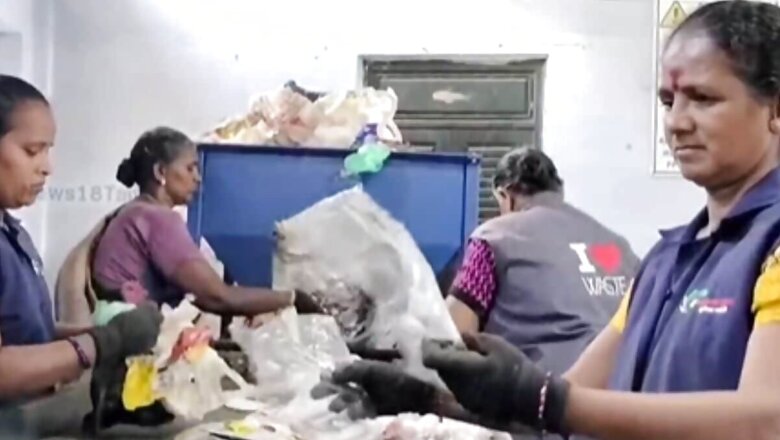
views
Seeing garbage on roadsides and streets is a common sight in India. In Tamil Nadu’s Virudhunagar, the challenge of solid waste management is burdened by the inefficiencies of municipal, town, and panchayat authorities, despite their efforts to implement various plans to address street litter. The situation remains a significant problem, particularly in urban areas, where waste management systems often struggle to cope with the volume of waste produced. In India, it is reported that the average individual in metropolitan areas generates approximately 0.8 kilograms of waste per day. The major challenge in managing this waste is plastic. With many people mixing their garbage and disposing of it indiscriminately, solid waste management becomes an increasingly difficult task. To address this issue and encourage responsible waste disposal, the RJ Waste Bank has been actively working to collect and manage waste in a more structured manner.
Rajavalli, who manages the RJ Waste Bank, explained that she operates this waste management initiative with the support of her mother-in-law, with the goal of setting an example in the field of solid waste management. The waste bank, which operates with a team of over 20 employees, visits households daily to collect their waste. Each household’s contributions are recorded meticulously, and after collection, the waste is sorted according to type.
Recyclable items, such as plastic bags, are assigned a monetary value and are paid to those who contribute them. This system provides a financial incentive for waste contributors. Non-recyclable waste, such as flexible plastics, is repurposed and sent to cement factories to be used as raw material. The promise of receiving money for their waste has been well-received by the public, leading to increased participation and cooperation.
Currently, some city and municipal local bodies are joining forces with the RJ Waste Bank to enhance their waste management efforts. Unlike other waste banks which collect and simply store waste, the RJ Waste Bank is committed to actively recycling the waste it collects. Rajavalli emphasises that, despite the hazards associated with waste piles, their primary focus remains on recycling and ensuring that the waste is managed effectively and responsibly.



















Comments
0 comment